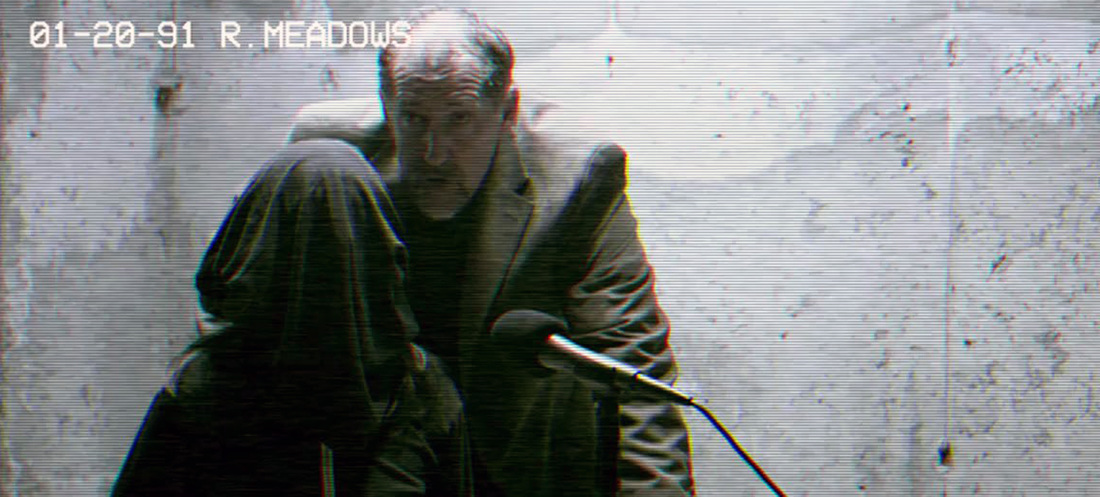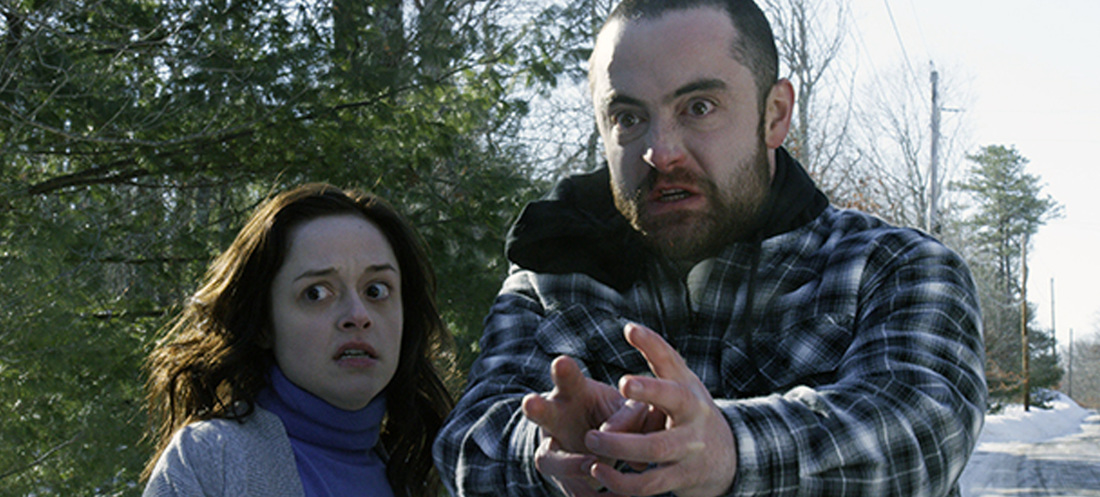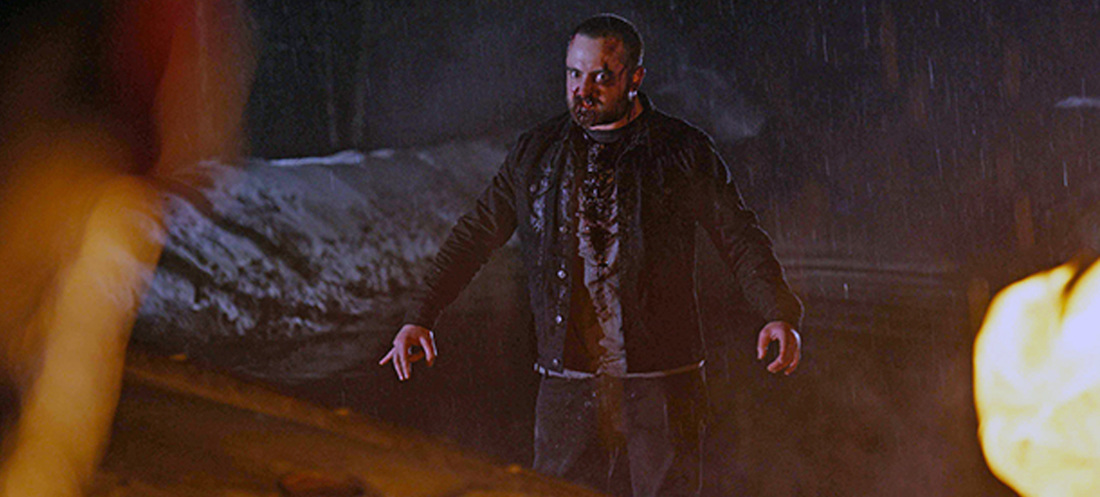I suppose its sentiments like those that will never be lost on storytellers like Joe Begos. With two feature productions under his belt, he’s clearly set himself on a path to examine “the Out There,” and I – for one – wish him well. But how worthy are his films of your time?
(NOTE: The following review will contain minor spoilers necessary solely for the discussion of plot and/or characters. If you’re the type of reader who prefers a review entirely spoiler-free, then I’d encourage you to skip down to the last three paragraphs for my final assessment. If, however, you’re accepting of a few modest hints at ‘things to come,’ then read on …)
Writer/director Joe Begos’ second feature is a modest improvement over his 2013 entry, Almost Human, a small production that hinted at big ideas (alien abduction, supernatural evil, etc.). The Mind’s Eye flirts with similar territory but offers the distinctions of expanding the storytelling to multiple locations, a slightly more talented cast, and a narrative that thankfully drills down to one selling point (to a degree): psychokinesis. Oh, sure, there are some other shenanigans worked in there, such as medical testing to improve or mutate a subject’s DNA, but all of it remains centered around the unique ability to move objects or effect outward change via only the human brain.
Sadly, those distinctions don’t really mean much when they’re paired up with such nondescript or unexplored characters.
In the role of the hero, Graham Skipper only delivers an obligatory performance: though shackled with a heavy personal remorse over a tragedy he caused when misusing his powers in the past, he’s still perfectly comfortable relying on them in the present. In fact, his character – Zack Connors – really only exists to use them regularly and otherwise wouldn’t garner a second glance (from audiences). In the role of the villain, John Speredakos oozes suitable menace when the script calls for it, but he’s provided little to no backstory about who he is, why he’s set himself on this path, or why he’s surrounded himself with the ineptest band of local yokels this side of Petticoat Junction. Perhaps the film’s saving grace remains Lauren Ashley Carter: she’s perfectly cast as the young, fetching, and vulnerable Rachel Meadows – a love interest for Connors – but Begos’ script gives her so little screen time that she’s reduced to little more than a “damsel in distress” as opposed to a full-bodied creation.
All of that said, let me definitely mix no bones about this: Begos remains a talented director and one worth watching, especially if you’re like me and naturally intrigued by this subject matter.
To his credit, Begos’ films ‘feel’ authentic though delivered with poorly developed or downright incomplete characters (i.e. ‘eyepatch’ villain or nurses who don’t quite act like nurses). Both of his features strongly suggest he’s pretty impressive at capturing old school practical effects in-camera and pairing them up with stories even when these tales might not be strong enough to hold viewers on their own. Perhaps if he found a screenwriting partner and shaved off some of the writing duties he’d have more time to do what he does well: direct.
Dare I suggest he’s otherwise spreading his gifts a bit too thin? Directing alone is certainly a daunting enough challenge for one budding talent.
RECOMMENDED because I tend to think that films like The Mind’s Eye probably have as many supporters as it does detractors. Today’s spoiled audiences (you know who you are) tend to prefer big budget effects and CGI-hypersplash over even modestly nuanced filmmaking, especially when it comes to events more supernatural than natural. I’m old enough to still appreciate what practical effects can do to an earthier story; I just wished these were paired with characters I cared about as opposed to ones forced on me by a sub-par script. A good effort … just quite good enough.
In the interests of fairness, I’m pleased to disclose that the fine folks at RLJ Entertainment provided me with a DVD copy of The Mind’s Eye (2015) by request for the expressed purposes of completing this review; and their contribution to me in no way, shape, or form influenced my opinion of it.




 RSS Feed
RSS Feed